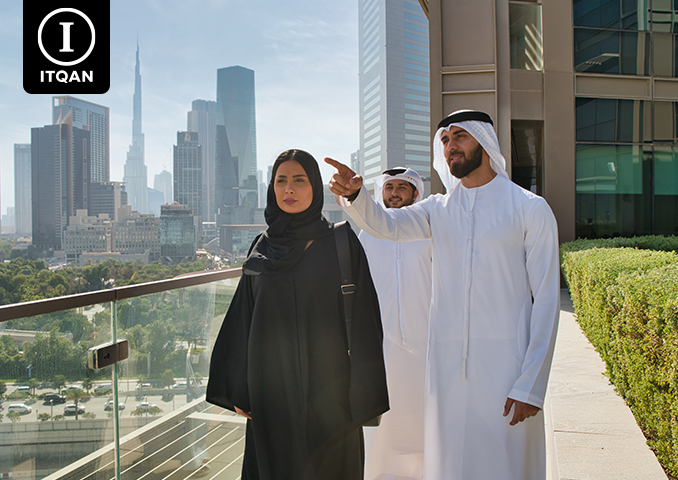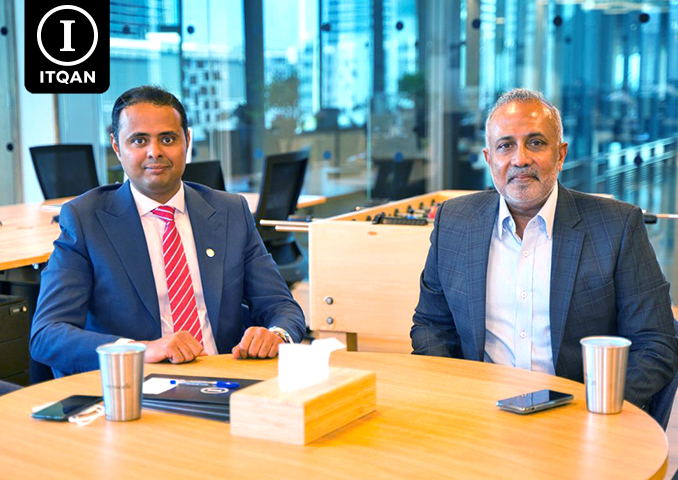Some investors would like to know what are the investment laws for foreigners in the UAE because the UAE is considered one of the most attractive destinations for foreign investment in the world, as it provides a stable investment environment and innovative laws that encourage economic growth and achieve sustainable development. The UAE was founded on the principles of good governance and partnership between the public and private sectors, which contributed to making it a preferred destination for investors from around the world.
Investment laws in the UAE are characterized by transparency and flexibility, as they allow foreigners to own businesses by up to 100% in economic freedom zones and joint-stock companies in some specific sectors. The UAE government also provides full legal protection to foreign investors, making it a safe and conducive environment for investment.
The UAE always seeks to improve the investment environment, by issuing many laws and legislation that aim to simplify administrative procedures, enhance competitiveness, and promote creativity and innovation in various economic sectors.
In this way, the UAE remains one of the best destinations for foreign investment, as it provides a distinctive investment environment that combines political and economic stability with innovative laws that bring prosperity and well-being to investors.

جدول المحتوى
ToggleWhat are the investment laws for foreigners in the Emirates?
The United Arab Emirates is considered one of the main destinations for foreign investment, as it offers an open and attractive investment environment for investors from all over the world. The UAE seeks to attract foreign investments through policies and laws that encourage economic growth and provide a competitive and innovative environment.
Investment laws in the UAE provide foreigners with great opportunities to invest in various economic sectors, as foreigners can own businesses up to 100% in economic freedom zones and shareholding companies in some specific sectors. The UAE government also provides full legal protection to foreign investors, making it a safe and favorable environment for investment, which includes:
- Joint stock companies: Foreigners can establish joint stock companies in various sectors with a percentage of up to 49%, with the possibility of establishing private joint stock companies where 100% of the ownership is owned by foreigners.
- Sole Proprietorships: Foreigners can establish sole proprietorships in some private regions with 100% ownership.
- Partnership companies: Foreigners are allowed to establish partnership companies with Emirati citizens, where the foreign partner can own up to 49% of the partnership interest.
- Companies in free zones: Free zones in the UAE provide opportunities for foreigners to establish companies with an ownership percentage of up to 100%.
- Professional licenses: Foreigners can obtain professional licenses to practice certain commercial activities with 100% ownership. The requirements and procedures for establishing these commercial entities vary according to the type and geographical region in the Emirates. It is important to obtain appropriate legal advice before embarking on any investment activity.
Procedures and conditions necessary for foreign investment in the Emirates
Foreign investment in the Emirates , there are several procedures and conditions that must be taken into account, and they differ slightly depending on the type of business entity and economic sector. However, here are some general procedures and conditions that generally apply to foreign investment in the UAE:
- Obtaining an investment permit: The foreign investor must obtain an investment permit from the relevant bodies, such as the Department of Economic Development in each emirate.
- Choosing the economic activity: You must determine the economic activity you wish to practice and ensure that it complies with local conditions and laws.
- Establishing the company: After obtaining the permit, the company must be established and the required documents must be submitted, such as social contracts and certificates of shareholders and directors.
- Necessary capital: The necessary capital must be provided to establish the company, which varies according to the type of company and economic sector.
- Obtaining a residence permit: Foreign investment may require obtaining a residence permit in the Emirates, which depends on a set of conditions and criteria.
- Tax Compliance: The foreign investor must comply with local taxes and file the required tax returns.
- Special licenses: Some economic activities may need special licenses, such as building permits or environmental licenses, and these requirements must be complied with.
These procedures and conditions are general and their details may vary according to the individual case and the type of investment chosen. It is important to obtain advice from Itqan Company experts in order to double the efficiency of your project with the advice of our experts. Read the local legislation and laws before starting any investment in the Emirates.
how to invest in Dubai
Investing in Dubai is an attractive opportunity for many investors, as Dubai is characterized by a thriving business environment and strong economy. Here are some tips on how to invest in Dubai:
- Research and Planning: Conduct extensive research and careful study on the investment opportunities available in Dubai. Check different economic sectors such as real estate, tourism, technology, retail, finance, and others.
- Local partnership: It may be better to collaborate with local partners in Dubai, as they have local experience and market knowledge. They can help you understand legal and regulatory requirements and facilitate investment procedures.
- Real Estate: The real estate sector in Dubai is considered one of the most attractive sectors for investment. You can buy real estate for investment and rent it, or participate in real estate development projects. Make sure you understand the real estate laws and regulations related to purchasing real estate as a foreign investor.
- Investing in stocks: Dubai offers a thriving stock exchange that includes many local and international companies. You can invest in stocks, bonds, and ETFs.
- Investing in Hospitality and Tourism: The hospitality and tourism sector in Dubai is considered one of the fastest growing sectors. You can invest in hotels, hotel apartments, restaurants, and tourist resorts.
- View Legislation: Check the laws and regulations related to investing in Dubai and the UAE. Ensure compliance with legal, tax and regulatory requirements.
- Financial Advisory: Find a professional financial advisor who can help you develop an appropriate investment strategy according to your goals and budget.
- Financial Transparency: Your financial operations should be transparent and reliable. Maintain accurate records and take caution in financial dealings.

Procedures for establishing foreign companies in the UAE
Establishing foreign companies in the UAE is subject to local legislation and regulations. Here are some general procedures that must be followed to establish a foreign company in the UAE:
- Research and planning: Conduct extensive research about the business activity you wish to practice and determine the appropriate emirate to establish the company in.
- Local Partnership: In the UAE, the establishment of foreign companies usually requires the presence of a local shareholder partner who owns a certain percentage of capital. You can contract with a local partner and determine the financial ratios according to the joint agreement.
- Choosing the legal type of company: You need to determine the appropriate legal type for your company, whether it is a joint stock company, a limited liability company, an individual company, or others. The law stipulates specific requirements for each type of company.
- Choose a company name: Select a company name that complies with local laws and regulations. You must ensure that the name is not repeated and that it does not violate the rights of other trademarks.
- Submitting the required documents: The process of establishing the company may require submitting a set of documents such as partners’ passports, the partnership agreement, registration application forms, and the required financial reports. These documents must be submitted to the relevant government agencies.
- Obtaining the necessary licenses: After submitting the required documents, you will need to obtain the necessary licenses from the relevant government authorities, such as a business license, office license, work license, and others.
- Local consultation: It is useful to seek help from a local consultant who specializes in the procedures for establishing foreign companies in the Emirates. They can help you understand the legal requirements and guide you through the process.
- Compliance with financial controls: You must adhere to the financial controls and financial reports required by government agencies and regulatory bodies in the Emirates. Ensure compliance with specified financial standards and requirements.
Tax facilities available to foreign investors
The UAE provides tax facilities to foreign investors to attract foreign investments and promote economic growth. Here are some tax facilities available in the UAE:
- Free zones:
There are free zones in the Emirates such as Jebel Ali Free Zone, Dubai Free Zone, and Khalifa Free Zone in Abu Dhabi. These areas provide tax facilities such as not imposing corporate tax for a specific period, not imposing customs duties on import and export, freedom of money transfer and other benefits.
- Low or exempt taxes:
Taxes imposed in the Emirates vary from one emirate to another. Most emirates impose corporate tax (income tax) on companies, but there are exceptions and relaxations for some specific economic sectors. For example, in Dubai, companies in free sectors enjoy complete exemption from corporate tax for up to 50 years.
- Not charging personal income tax:
In the UAE, income tax is not imposed on individuals, including foreign investors. This means that personal dividends and income received from investments are not taxable.
- Not imposing value added tax on some sectors:
Value Added Tax (VAT) was introduced in the UAE in 2018, and the standard tax rate is 5%. However, there are some sectors that are exempt from VAT, such as health, education and public transportation.
- Mutual Protection Agreements for Tax Avoidance:
The UAE may have entered into agreements to avoid double taxation with some countries. These agreements aim to avoid taxing twice on the same income and encourage trade and investment between countries.
Learn what are the investment laws for foreigners in the UAE
Investment laws for foreigners in the UAE are vital to enhancing the investment climate and attracting foreign capital. In cooperation with Itqan Company, support and guidance are provided to foreign investors in understanding and complying with these laws.
Investment laws in the UAE include several important aspects. One such aspect is the Foreign Investment Law which provides the legal framework for foreign investors. This law defines the rights and duties of investors and ensures legal protection for foreign investments.
In addition, there are free zones in the UAE that provide additional facilities to foreign investors, such as not imposing corporate tax, easy customs clearances, and other financial facilities.
Labor laws in the UAE aim to protect workers’ rights and ensure a fair working environment. These laws also require the commitment of foreign investors to provide local job opportunities and provide appropriate training for workers.
In short, Itqan partners with foreign investors to guide them and provide support in understanding and complying with UAE investment laws, enabling them to achieve sustainable success in the thriving UAE business environment.
Frequently asked questions about investment laws for foreigners in the UAE
What laws must foreigners adhere to to invest in the UAE?
Foreigners must abide by the laws and regulations of the UAE Federal Ministry of Economy, which regulate foreign investment and specify investment conditions and requirements.
Are there restrictions on the sectors that foreigners can invest in in the UAE?
Yes, there are some specific sectors that require special approval to invest in, such as the military and security sectors.
What are the procedures required for foreigners to obtain a permit to invest in the UAE?
Procedures include submitting an application to the Federal Ministry of Economy, submitting the required documents, and obtaining the necessary approvals.
Do foreigners have to partner with Emirati citizens to invest in the UAE?
In some sectors, foreign investment requires partnership with UAE nationals at a specified percentage in accordance with local laws.
Can foreigners obtain real estate ownership in the Emirates?
Yes, foreigners can obtain real estate ownership in some specific areas in accordance with real estate laws in the Emirates.
What taxes are required for foreigners investing in the UAE?
Foreign investments are subject to certain taxes, such as income tax and value-added tax, according to local tax laws.
Are there special details that must be taken into account to invest in vital sectors such as oil and gas in the UAE?
Yes, the laws and regulations for vital sectors such as oil, gas and energy must be observed, and contracts must be concluded with the competent authorities in accordance with specific procedures.
What are the penalties for non-compliance with investment laws for foreigners in the UAE?
Penalties can include fines, revocation of licenses and contracts, and in some legal cases, criminal penalties.













